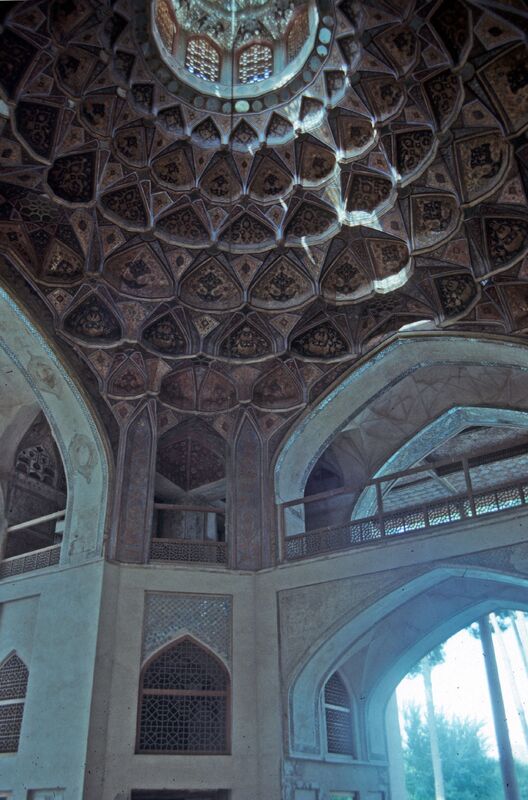Hasht Bihisht Palace
Item
- Title
- Alternative Title
- City
- Address
- Country
- Date Created
- Century
- Classification
- Building Type
- Style/Period
- Cultural Context
- Materials
- Techniques
- Subject
- Description
- Source
- Photographer
- Rights Holder
- Access Rights
-
Hasht Bihisht Palace
-
Khane-ye Boroujerdiha
-
Boroujerdiha House
-
خانه بروجردی ها
-
Eşfahān, Eşfahān, Iran
-
Eastern side of Chahar Bagh-e Abbasi St
-
Iran
-
1669
-
17th century
-
Architecture and City Planning
-
Safavid (style)
-
Safavid dynasty (period)
-
Islamic
-
Iranian
-
Persian
-
brick
-
wood
-
marble
-
vaulting
-
wood frame
-
Hasht Behesht Palace
-
Isfahan
-
dome
-
muqarnas
-
semi-open pivilion
-
view of semi-open domed hall and adjacent arched spaces
-
Located in the center of the Garden of Nightingales (the Bagh-e Bulbul), the Hasht Behesht is one of Isfahan's two surviving Safavid pavilions. Built under Shah Sulaiman some twenty years after the Chihil Sutun, it is quite different in style from the earlier pavilion, although it exhibits the same concern for the interplay of interior and exterior spaces. 'Hasht Behesht' translates as 'Eight Paradises' and refers to a Timurid palace building type consisting of two stories of four corner rooms around a central domed space. In Isfahan, the corner rooms are octagonal, forming massive pillars that define four large openings leading to large porches in the south, east and west, and an iwan in the north. The vault of the central space is detailed with polychrome muqarnas and is capped with a lantern.
-
Saif Haq
-
Saif Haq
-
© Saif Haq
-
Users must request permission from the copyright holder for all use in publications, including theses and dissertations.
“Hasht Bihisht Palace”, Arch Design Images, accessed November 29, 2025, https://exhibits.lib.ttu.edu/s/archlib/item/15120


